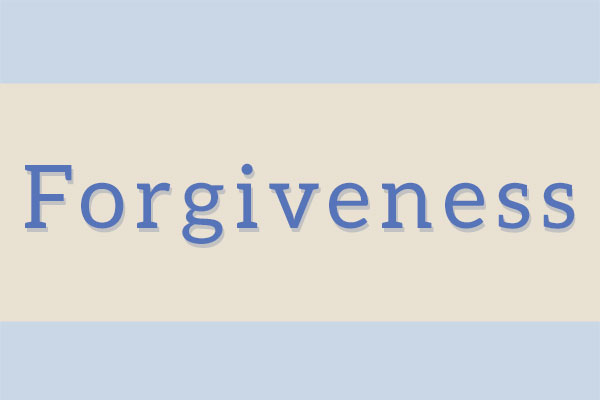Let Go of the Hurt and R.E.A.C.H. Toward Forgiveness
How to Embrace the Freedom of Forgiveness as a Cancer Survivor
by Everett L. Worthington Jr., PhD
Whether you need to forgive yourself or someone who has hurt you, here are some things you can do to welcome forgiveness into your life.
Coping with cancer is stressful – not only for the person diagnosed but also for everyone in his or her life. When people are under stress, small frustrations are magnified until they morph into larger issues. Stressed-out people do and say things they regret. Emotions flare. Past wounds resurface. When one person lashes out, the other is left with hurt feelings, resentment, anger, and unforgiveness. And the person who delivered the barb may feel guilt, remorse, shame, and self-condemnation. We want to forgive and forget. But we don’t always know how to get past the hurt and embrace the freedom of forgiveness.
R.E.A.C.H. Toward Forgiveness of Others
When someone has wronged you, it can be difficult to forgive them, especially if they haven’t apologized. When we decide to forgive, it helps to remember that the offender is a person, just like you, who deserves to be treated humanely. Then you can follow these steps to help you R.E.A.C.H. toward forgiveness of someone who has hurt you.
• Recall the hurt. In order to heal, you must first acknowledge that you’ve been hurt. Then make a choice to not think of the person who hurt you as a jerk, and especially to not treat them as such.
• Empathize. Empathy is the act of putting yourself in the other person’s chair. Try this exercise to help you build empathy. Set up two chairs facing each other and sit down in one. Now, pretend that person who wronged you is sitting in the empty chair across from you. Describe to them how their actions have hurt you. When you’ve had your say, move to the other chair and respond as if you are the offender. This exercise allows you to literally put yourself in the other person’s chair, thereby building empathy, which can help you heal from hurt.
• Altruistically give. We all can remember a time when we wronged someone and that person forgave us. We felt light and free and didn’t want to wrong them again. You can give that same gift of forgiveness to someone who has hurt you.
• Commit. Once you’ve forgiven someone, write a note to remind yourself of your forgiveness. It can be something as simple as “Today, I forgave Jane for hurting me.” This helps reinforce your forgiveness.
• Hold on to forgiveness. If there ever comes a time when you begin to doubt that you really did forgive the person who wronged you, re-read the note and remember. You did forgive.
In order to heal, you must first acknowledge that you’ve been hurt.
Six Steps to Forgiving Yourself
If you feel guilt, shame, or remorse because you’ve done something you don’t feel good about, here are six steps you can take to help you forgive yourself. But be careful not to use forgiveness as an excuse to let yourself off the hook for wrongdoing; you must forgive yourself responsibly.
1. Receive a higher forgiveness. First, make things right with that which you consider sacred. For many, that would be God or a higher power. Others may feel they need to make amends with humanity or with nature.
2. Repair relationships. If you feel that you’ve hurt someone, try to make amends for what you’ve done. Even if you’ve done what seems like irreparable damage, you can pay forgiveness forward by helping others not make those same mistakes.
3. Rethink ruminations. Sometimes, regret and remorse overpower us because we feel the need to be perfect. Try not to ruminate on times when you feel you’ve fallen short of your own expectations. It’s also important to reframe any unrealistic expectations you’ve placed on yourself.
4. R.E.A.C.H. toward self-forgiveness. Decide to forgive yourself, and then apply the steps above to R.E.A.C.H. forgiveness for yourself.
5. Rebuild self-acceptance. Accept yourself as someone who is flawed but valuable. If you are having trouble seeing your own worth, reach out to a friend or a professional to help you see the good in yourself.
6. Resolve to live virtuously. If you’ve made mistakes, commit yourself to not repeating them.
Surviving cancer is a triumph, but it doesn’t mean you’ll never again experience stressful situations. During these times, you can improve your quality of life (and the quality of life for those around you) by committing to R.E.A.C.H. toward forgiveness – for yourself and for others.

Dr. Everett Worthington Jr. is a Virginia Commonwealth Professor Emeritus and licensed clinical psychologist who has studied forgiveness for almost 40 years.
For more information and resources from Dr. Worthington on how you can R.E.A.C.H. toward forgiveness in your life, visit EvWorthington-Forgiveness.com.
This article was published in Coping® with Cancer magazine, May/June 2019.


